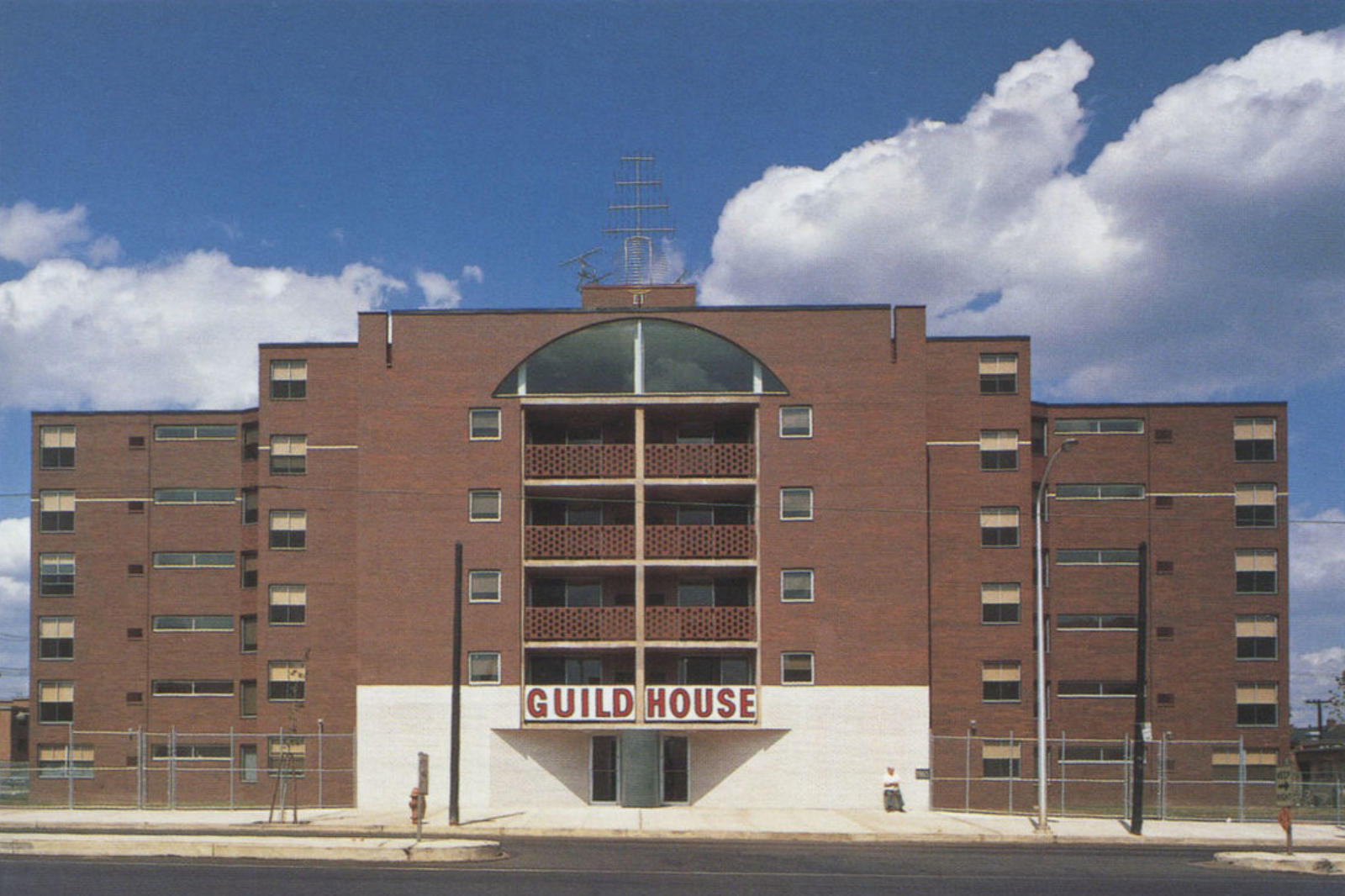The Call for Abstracts is now closed.
The committee will notify participants in February if their submission was accepted or not.
Call for Abstracts
Yo! Modernism! In the Philadelphia region, “yo” is a colloquialism used to get someone’s attention quickly. It’s a phrase without pretense, and when combined with Modernism, it puts into focus the importance of place and community in our modern heritage, as well as the urgency of preservation efforts. The 2022 Docomomo US National Symposium will explore why Modernism still has the power to turn heads, to inform, and to adapt, and how its many manifestations reflect on local, regional, and broader goals.
From pared-down Classicism to space-age whimsy, from the streamlined to the sculptural, from the monumental to the everyday, the multi-layered, multi-generational Modernism found in Philadelphia reflects ideas found around the world, and we look forward to exploring these ideas further.
Thematic Goals
- Promote a broader understanding and appreciation of Philadelphia’s diverse modernisms
- Broaden the range of voices identified with and as modern heritage
- Consider city planning’s role in shaping modern heritage
- Explore the role of archives and archival collections in modern heritage conservation
Docomomo US and Docomomo US/Philadelphia invites researchers, practitioners, and enthusiasts involved in the process of preservation, conservation, renovation or transformation of buildings, sites and neighborhoods of the Modern Movement to submit abstracts of papers or full sessions that align with the stated thematic goals. Topics outside of the suggested areas will be considered for open or alternate sessions. We welcome submissions that take a holistic approach to modern resources (not just the buildings), and consider the social context, technical merits, aesthetics, and settings when evaluating them. Abstracts should include how the subject contributes to the broader discussion of diversity, equity, inclusion, and justice, either generally or in relation to a specific field of study.
Session Topics to Consider:
-
City Planning and Modern Heritage
How has the notion of city planning affected modern design? What impact have modern planners, such as Philadelphia’s Edmund Bacon, had on our cities and the people who live there? How does the legacy of urban renewal affect current preservation efforts? -
Reassessing Modernism in the Americas
Is there a symbiotic relationship between modernism in the Americas? What influence did Latin America have on the course of modern architecture in the United States, and vice versa? For example, Mario Romanach, one of the significant architects of Cuban Modernism, made significant contributions to architectural education through during his time at the University of Pennsylvania. -
Archives and Collection
What is the role of archives and archival collections in modern heritage advocacy and preservation? How are inequities in society reflected in archival practices and how has this impacted our understanding of the history of modernism? -
Everyday Modernism
Where do we see Modernism in vernacular architecture? How have “Mom and Pop” reinterpreted and added to the genre? What are some aspects of high and low Modernism? -
Style in the Rear-View Mirror
Brutalist buildings of the 1970s gave way to the more lyrical Postmodernism of the 1980s-90s. Both styles inspired their own detractors in turn. Are we too close in time to judge the value of these buildings? How does changing taste put important sites at risk? -
The Elusive Philadelphia School: The Many Guises of the Region’s Modernism
Regionally noted designers and architects who combined influences and made them their own have contributed to the rich panoply of styles that encompass Modernism in the Philadelphia region. What are the similarities and differences among these architects, and what are the qualities that may or may not make Philadelphia Modernism distinctive?
Submission Guidelines
Abstracts are due by Thursday January 13, 2022 at 5 pm Eastern and should include the following required information:
- Title (65 characters max)
- Abstract (400 words max)
- What will people learn from this subject or session? (100 words max)
- Author’s name, affiliation, email, phone, address, and pronouns
- Author’s biography (200 words max)
- Headshot
All submissions must be in English. Papers should take no more than 20 minutes to present. Submissions for entire sessions should include at least two speakers and be no longer than 75 minutes long, including time for discussion.
Participants will be notified in February 2022 and a first draft will be expected in March 2022. The National Symposium is planned to take place in-person in Philadelphia from June 1-4, 2022. Speakers will be expected to present in person, in addition to providing a video recording of their presentation in advance of the Symposium to be posted for virtual viewing.
Speakers will receive a reduced registration rate for the Symposium.
